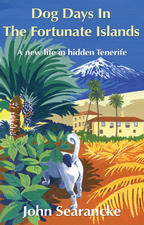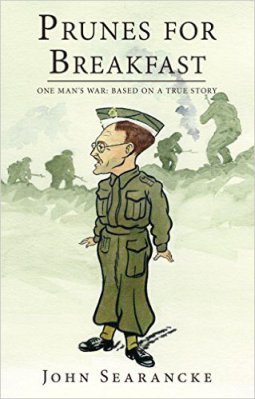Lily Iona MacKenzie's Blog, page 50
June 26, 2016
Does your character have dangerous curves?
My novel Bone Songs will be published early in 2017. That is months away, but before the manuscript is ready for final production, it has several stages to go through.
For the past month, I’ve been revising the content, based on recommendations and/or suggestions made by my publisher, Jaynie at Regal House. Her reading of the book was intensive, close, and detailed. She has given me many valuable ideas about characters, the plot, and so much more. I haven’t acted on all of her suggestions, but I have incorporated a good deal. I’m almost ready to move onto the next stage, which will include more content revisions, I’m sure, but also will focus on proofreading corrections.
The main character in this work is Curva Peligrosa, but that isn’t the name I started with. Lupita was her name originally, yet after the opening scene, when a tornado hits this small Southern Alberta town called Weed, throwing the place into turmoil, and the storm drops the main character’s outhouse into the center of town, I felt stuck. Her personality eluded me, a disappointment after my first rush of excitement in starting the narrative.
This character was born in southern Mexico, and it wasn’t until my husband and I visited Mexico City that Curva came into focus. We had booked into Las Mananitas in Cuernavaca for five nights, a town two hours by car from Mexico City. A driver picked us up from the airport and took us to our lovely destination. It was during this ride that I kept seeing the words curva peligrosa pop up on signs each time we took a curve.![dangerous curves]](https://i.gr-assets.com/images/S/compressed.photo.goodreads.com/hostedimages/1467092802i/19550416.jpg)
I asked the driver what the word meant, and he said dangerous curves. I knew then that my character’s name would be: yes, you guessed it: Curva Peligrosa.
She immediately came into view. I could visualize her. I also could hear her voice and imagine her personality. She turns out to be a charismatic larger than life (over six-foot-tall and voluptuous) woman who not only is a sharp shooter but also traveled the Old North Trail for 20 years with her horses, dog, two parrots, and a goat—a wilderness route running from Mexico to Canada that she manages to infiltrate and transcend. She also throws dangerous curves at residents of Weed, Alberta. But you’ll have to read the novel to find out more!
Filed under: Links Tagged: alberta, bone songs, canada, curva peligrosa, dangerous curves, mexico, regal house publishing








June 13, 2016
Removing Roadblocks
I’m in the last stages of reworking my novel Bone Songs in preparation for publication in spring 2017. I need to submit this draft by the end of July, or soon after, so the publisher can go through it again and make other recommended revisions.
 The last part of the process will include copyediting, fine tuning grammar and punctuation. The manuscript needs to be complete and ready to go to press in November so advanced review copies (ARCs) will be available six months before the novel is released. The ARCs are sent out to publications like Library Journal and others who might be willing to do early reviews.
The last part of the process will include copyediting, fine tuning grammar and punctuation. The manuscript needs to be complete and ready to go to press in November so advanced review copies (ARCs) will be available six months before the novel is released. The ARCs are sent out to publications like Library Journal and others who might be willing to do early reviews.
The problem with trying to revise work that I’ve already been through numerous times is that I don’t want to change it! While the editor’s comments may convince me that I need to add new material or rethink certain sections, it’s very difficult to make those changes in the document that I now think of as final. I can’t generate and insert new material into a narrative that feels complete.
What to do?
Open a new MW doc and forget about the other one. Free write for as long as it takes to make the required changes. And remember this process the next time I have to revise a manuscript that seems finished. Until I run into a roadblock again and have to improvise a way over it!
Any ideas?
Filed under: Links Tagged: revising; arcs; roadblocks; manuscript; copyediting;








June 6, 2016
Dear Fellow Writers and Book Marketers,
This past weekend, I signed up to share a booth with another writer, a woman I didn’t know, at the Bay Area Book Festival in Berkeley, a relatively new venue. Its first session was in 2015, and it claimed to be an international event that draws people from all over the world: “More than 50,000 diverse people of all ages, from urban to suburban Bay Area communities and beyond.”
We were supposed to “man” our booths from 10 AM to 6 PM on both Saturday and Sunday. The stalls were 10’ by 20’ x 8’. The organizers told us we each would have an 8’ bare table with two folding chairs. These accouterments were placed on concrete that sloped from the center of the street towards the curb where a stream of water gushed past. We tried to arrange our tables in a “v” as directed, but it was impossible to do in such a small space. Since the street was slope towards the sidewalk, our books toppled over. So the second table ended up at the back of the booth and was useless. The two of us ended up sharing the one 8’ slab.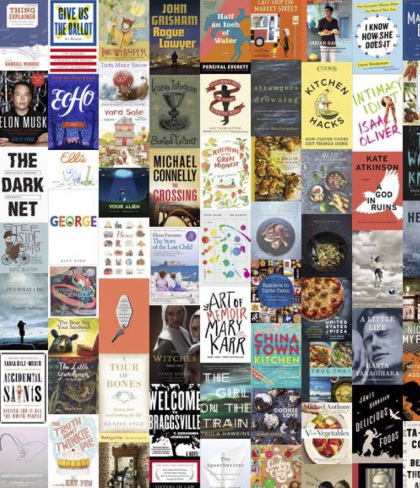
But I tried to stay positive, assuming that those attending the festival would be literary and might even be interested in buying books. So I thought my $175 fee would be well spent. I didn’t expect to make all of the money back through book sales, but I felt the exposure might be worthwhile.
It wasn’t. It also didn’t help that the organizers were giving away hundreds of free books nearby!
The booth I shared was on Addison Street’s “Literary Lane.” I discovered that Addison was a thoroughfare for those who were attending the Farmer’s Market. Consequently, many that passed by actually weren’t interested in books, unless something unusual caught their eye. And even those who were readers seemed reluctant to stop and peruse, afraid, it appeared, of being roped into making unwanted purchases. So my stack of postcards that give my novel’s synopsis, my business cards, and my pen giveaways were largely ignored. Occasionally, I enticed someone to our table by offering a free pen, but the person quickly fled with his/her gift.
I should have learned my lesson after attending a conference this summer in Calgary during my book launch. At least I wasn’t outside and dealing with wind and f
og. But my books did share tables with hundreds of others, mainly genre fiction. It was a complete bust, and I should have realized that the Berkeley event would not be any better.
The problem with festivals/conferences/whatever is that each wr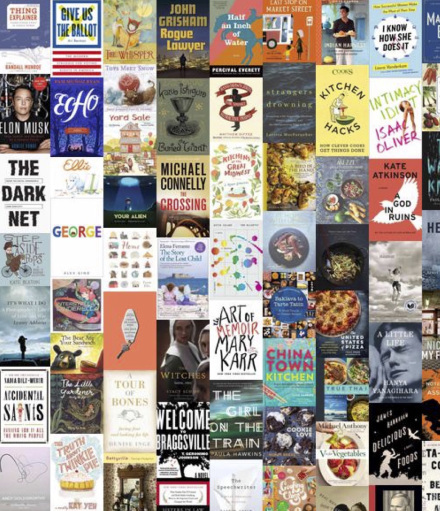 iter’s work is in competition with hundreds of others. When I took a walk down Literary Lane, I found that the booths blurred together, and I had no desire to stop at any of them. Oddly, the only person who attracted sales was my booth mate. She was selling tee shirts with catchy slogans across the chest, her poems printed on the backs.
iter’s work is in competition with hundreds of others. When I took a walk down Literary Lane, I found that the booths blurred together, and I had no desire to stop at any of them. Oddly, the only person who attracted sales was my booth mate. She was selling tee shirts with catchy slogans across the chest, her poems printed on the backs.
I didn’t stay until 6 PM. I left at 4:30. Nor did I return on the Sunday. It was pointless, a complete waste of my time and money.
Unless you are a major literary figure or have a particular shtick, you will not do well at these events. However, if you can find your way onto a panel or do a presentation, then you might have a better chance of being recognized and make some sales. But don’t count on it.
Filed under: Links Tagged: bay area book festival, book conferences, book fairs, book festivals








May 30, 2016
Rain Forest Heaven: Olympic National Park
We’re thinking of where we want to spend our vacation this summer, and Olympic National Park is beckoning again. My husband and I spent time there a few years ago, and we can highly recommend it. Our experience at Olympic is the subject of this blog post.
Trees you can find most anywhere. Mountains too. But the combination of trees, mountain ranges, the Pacific Ocean, rivers, lakes, streams, bays, inlets, and sounds make Olympic National Park unique. More good news: when my husband and I visited the Park for the first time during late June, it wasn’t overrun with tourists, and those who were there seemed to be mainly from Washington state. I can see why the locals might want to keep quiet about this peninsula: It’s gorgeous. You also can see the main highlights in a few days.
Okay: the truth. We visited Olympic Park by accident. We were finishing up a road trip that had started with the Grand Tetons, wound through Yellowstone and Banff National Park, and included a weeklong stay in Calgary to help my mother celebrate her 100th birthday. Having traveled Highway 5 between the San Francisco Bay Area and Vancouver on several occasions, we wondered what we could do differently this time through. The map had the answer: Veer right and visit the Olympic Peninsula. The detour was well worth it.
A stopover in Bellingham first was serendipitous. We stumbled onto charming Fairhaven, the historical part of the city fringing miles and miles of Bay. Many of the turn-of-the-century buildings have been restored. Some people are buying homes there and commuting to Seattle for work. It’s difficult to find a place that doesn’t have a water view.
 The next morning we headed south for Edmunds, just north of Seattle, where we caught a ferry to Kingston. The crossing took only a half hour. Our first stop was Port Gamble.
The next morning we headed south for Edmunds, just north of Seattle, where we caught a ferry to Kingston. The crossing took only a half hour. Our first stop was Port Gamble.
Established in 1853, the tiny town is also an historical site. The main street houses a café, a couple of antique shops, the old fire house, and a church. We stepped back in time, imagining the early inhabitants of the area, made easier after we spent a half hour touring the local museum.
On our way to Lake Crescent Lodge, where we had booked for two nights into the Marymere section, we stopped at Port Townsend, another place worth visiting, if only to ogle all the restored Victorians and to eat at one of the waterfront restaurants. We did both, and we also found it a great spot for shopping, unless you’re looking for shoes (at that time, not a shoe store in the whole town!).
A beautiful site, Lake Crescent Lodge met all of our expectations. Lush. Surrounded by fir
-covered mountains that frame the gorgeous lake.  Absolutely heaven. No TV. No radio. No phone. Our room was plain but big with an incredible view of the lake and surroundings. We also had our own patio where we drank wine and watched the sun set before dining in the Lodge.
Absolutely heaven. No TV. No radio. No phone. Our room was plain but big with an incredible view of the lake and surroundings. We also had our own patio where we drank wine and watched the sun set before dining in the Lodge.
After Lake Crescent, we moved south to Lake Quinault. On the way we continued our exploration of this geographically and culturally diverse park. It’s dramatic. Amazingly Green. And the Natives oversee some of the land. I would have liked another week to explore it more thoroughly.
On our way to Lake Quinault, we stopped at Hurricane Ridge, and it was well worth the side trip. From there, we saw the stunning Olympic range. White capped. Jagged. And then there was the view of the Juan de Fuca Straits and beyond that we saw after leaving the ridge. We even could see Victoria on Vancouver Island. The park has everything, from the ocean, to lakes, to mountains, to meadows, to flowers growing by the side of the road.
Lake Quinault isn’t as secluded as Lake Crescent, so it has a different ambiance and the area is more inhabited. We stayed at Lake Quinault Resort in the Quinault rain forest, a charming inn with beautifully kept grounds and its own resident tame deer that the owner saved when it was a fawn. Flowers everywhere—from hanging baskets, in planters. They also were along the rock walkways. There was a log swing and handsome wood picnic tables with umbrellas for public use. Each unit had a deck and Adirondack chairs. Before dinner, we took a boat cruise on the lake that Lake Quinault Resort offers and were served our choice of wine or cider.
 The next day, on the way to lunch at the coastal village of Kalaloch, we passed through the Hoh rain forest. It was magical, like entering a fairy tale. Clouds of licorice moss hung from branches and lived its own life without affecting the host trees. Enchanted, we parked the car and walked beneath it, enjoying the vista of verdant mosses and ferns lining the trail.
The next day, on the way to lunch at the coastal village of Kalaloch, we passed through the Hoh rain forest. It was magical, like entering a fairy tale. Clouds of licorice moss hung from branches and lived its own life without affecting the host trees. Enchanted, we parked the car and walked beneath it, enjoying the vista of verdant mosses and ferns lining the trail.
Back in Quinault, we visited the Lake Quinault Lodge for dinner. Its ambiance was reminiscent of the early 20th century. A lush lawn sloped down to the lake. Families sat together on the grass, talking and playing. Couples strolled on the paths. Dogs followed owners around. Everyone watched the sun set on the lake.
The interior of the handsome lodge was stately, as was the Roosevelt dining room with its views of the lake. Our servers wore white shirts and ties, and the dinner was tasty and nicely presented. I had simple chicken piccata and asparagus. My husband ordered seared scallops. We even indulged in sharing apple pie.
After dinner we sat in the lobby on one of several black leather couches. Kids played cards. Families chatted or played games. Some checked the Internet. Photographs of Roosevelt hung nearby. The place was built in two months, and pictures of Churchill also were on the walls, in addition to many earlier images of the place and area.
The next day, we reluctantly said goodbye to Olympic National Park. But if you like water, this park could be your ideal destination. It includes rivers, lakes, streams, bays, inlets, sounds, the Pacific Ocean, and, of course, rain. The park’s rain forest gets from 140 to 170 inches per year. The Olympic mountain range divides the park, and Canada isn’t far by ferry, so you could include a side trip to Victoria and other stops on Vancouver Island. How many National Parks offer so much?
Filed under: Links Tagged: kalaloch, lake crescent, lake crescent lodge, lake quinalt, olympic national park, port gamble, rain forest








May 24, 2016
PDS versus PDF
I sent an email message to family and friends recently that the publisher of Fling! had offered me a three-book contract. It will include my novel Freefall: A Divine Comedy (to be published in 2017), Tillie: Portrait of a Canadian Girl in Training, and a third that also will feature the Tillie character (she appears in Freefall as well).
One long-time friend responded, “You have worked harder as a writer than anyone I know and I’m proud of you!”
I replied, “I’ve learned that perseverance and determination and self-belief are essential to succeeding as a writer.”
But what does this mean?
 Let’s start with perseverance. We persevere when we continue doing something even if we have no assurance of success. If writers want to be published, they must endure self-doubt, rejections, and blocks to eventually be published. Writing a novel takes a long time. I started working on Fling! in 1999 and it wasn’t published until 2015! Of course, I wasn’t focused on Fling! all those years. I wrote other novels in the meantime. Yet if I hadn’t persisted, the book would not be out in the world, seeking its readers.
Let’s start with perseverance. We persevere when we continue doing something even if we have no assurance of success. If writers want to be published, they must endure self-doubt, rejections, and blocks to eventually be published. Writing a novel takes a long time. I started working on Fling! in 1999 and it wasn’t published until 2015! Of course, I wasn’t focused on Fling! all those years. I wrote other novels in the meantime. Yet if I hadn’t persisted, the book would not be out in the world, seeking its readers.
And determination? Clearly, it takes considerable resolve in order to follow this torturous path. Writers have to get up each day, sit down in front of the computer screen, and face the blank page, intent on moving the narrative forward (or even sideways if that’s the direction it wants to take) in order to complete the work. It requires considerable grit, doggedness, and courage to pick up the metaphorical pen and keep writing, no matter what.
By now you can see why self-belief is so essential. If you don’t have basic confidence in yourself as a writer, and that only comes from proving to yourself you have the right stuff by writing regularly, it will be more difficult for you to press on. The more we do something, the more our skills at that task improve. If I want to become a good tennis player, I can’t just go out a few times and swing at some balls. I’ll never develop belief in myself as a tennis player with that approach. But if I take some lessons and pursue the game consistently, I’m bound to improve. The same is true of writing, so that these three words—perseverance, determination, and self-belief—create a circle. Inside that ring is the writer who one day will find publishing success because s/he’s pursued his/her dream.
Hence, Perseverance, determination, and self-belief (PDS) versus Passivity, Doubt, and Fear (PDF).
Filed under: Links Tagged: determination, fiction, novels, perseverance, self-belief, writing








May 16, 2016
The Tsar of Writing: Anthony Marra
I’ve now read two of Anthony Marra’s books, A Constellation of Vital Phenomena and The Tsar of Love and Techno. Both are not only moving but also darkly funny. Someone once said that humor is a way of writing about serious matters, and Marra proves this saying to be true. He has chosen an area to write about whose inhabitants have been long-suffering. But somehow they manage to find specks of light in the soul-destroying darkness they inhabit. 
While A Constellation of Vital Phenomena is an official novel, official in the sense that it focuses on a handful of characters and is plotted, The Tsar of Love and Techno isn’t one. Instead, it’s a collection of linked stories that roam from the 1930s to the present and even beyond. Yet, Marra has so skillfully woven together these individual narratives that the work is as satisfying to read as a novel because the characters form part of a closely-knit network. By the end of the book, the narrative comes full circle so that the offspring of individuals encountered in the first section or two appear.
Consequently, one feels that this world had coherence and depth. There is violence and tragedy, but there also are family connections that somehow manage to survive just as the characters somehow manage to live through difficult situations.
In a scene where Kolya, the elder of a pair of youthful brothers is protecting his younger sibling from an assassination they have stumbled onto and are secretly witnessing in White Forest, the condemned man’s eyes happen to meet those of the younger brother’s. The man’s mouth is sealed with tape, but he tries to warn his killers about the boys’ presence: “He’s trying to warn them,” Kolya muttered disbelievingly. “He’s trying to warn the people about to kill him” (164). The killers didn’t pick up on what their prisoner was trying to say, but when one of them pulled the trigger to finally shoot their target, “nothing sounded but a hollow clack” (164). The condemned man ended up needing to show his murderers how to properly load the gun so he could experience his proper ending.
This kind of incestuous interaction is a major theme in The Tsar of Love and Techno. Victim and transgressor are so painfully intimate at times, it’s difficult to know whom to root for. But as a reader, I always was rooting for Marra, whose skill and wit give a new definition to the word “tsar.”
Filed under: Links Tagged: A Constellation of vital phenomena, Anthony Marra, russia, Siberia, The Tsar of Love and Techno








May 5, 2016
Reciprocating Reciprocity!
When I was young and not yet college educated, I heard a guy use the word reciprocity in a conversation I was having with him in a bar. Something about the word snagged on my brain, and I later looked it up, happy to have a new word to chew on. At that time I didn’t know I was a writer, though I always have been a reader. And this particular word opened up something in me that I hadn’t been aware of before.
Partly, I liked the sound of the syllables clinking together: re-ci-pro-ci-ty. Such a small word to have so many movements within its structure. That fact seemed appropriate when I discovered that the origins were from Latin, moving backward and forward. The word itself seemed to do what its original meaning suggested, the sound rippling through those sound units and supporting the letters denotation.
 But the dictionary meaning of exchanging things with others for mutual benefit compelled me as a young woman as much as these other elements. I realized this ability to return favors or feelings with someone else was the basis of most relationships, the foundation of community. I had stumbled onto something totally unexpected and all because this one word forced me to take it in.
But the dictionary meaning of exchanging things with others for mutual benefit compelled me as a young woman as much as these other elements. I realized this ability to return favors or feelings with someone else was the basis of most relationships, the foundation of community. I had stumbled onto something totally unexpected and all because this one word forced me to take it in.
That experience of first hearing reciprocity was triggered recently because my husband is going through some medical difficulties, a major trauma since he’s been so incredibly healthy all of his life, never missing teaching a class or seeing a patient (he’s also a psychoanalyst) because of illness. I’ve discovered that one hopes one’s friends will reciprocate in these circumstances, tightening the bonds of community, and it’s a tremendous disappointment when that doesn’t happen, as has been the case with a few people we considered close friends. My husband and I had been responsive to them when they went through difficult times. It’s impossible to have a functioning community without reciprocity.
I’m also seeing the word as being connected to writing as well, especially to these blog posts that many of us make and the proliferation of tweets, Facebook, and other efforts to reach out to our friends, or to make new ones. A writer, I’m hoping to find readers who will join me on my journey inward and outward as I explore through poetry, fiction, and non-fiction what it means to be human in this 21st Century. I hope you’ll come along for the ride!
Filed under: Links Tagged: community, relationships








April 30, 2016
Welcome to the guest author of Dog Days In The Fortunate Islands, an ideal read for those contemplating retirement
Enjoy the beautiful scenery and eternal spring with Dog Days In The Fortunate Islands by @AuthorDogDays #Travel ##ebook promotion #Europe #RPBP #ASMSG #WLM
Post Link: http://rukiapublishingbookblogger.blogspot.com/2016/04/welcome-to-tenerife-enjoy-beautiful.html
Html Embed Code Below(Copy And Paste)

Dog Days In The Fortunate Islands is an ideal read for those contemplating retirement, moving to the Canary Islands or an extended trip through Spain. The book will also appeal to any dog lovers and holidaymakers who enjoy an interesting story.

On the brink of retirement, John and his wife Sally are determined to end a life at the grindstone in grimy and wet Lancashire. Together with their beloved Jack Russell/Staffie cross, Freddie, a rescue dog from the local RSPCA, they embark on the journey of a lifetime and relocate to the island of Tenerife.
Selling up, they make the move to the north of Tenerife, a part almost unknown to the casual tourist – their very own hidden paradise. Relaxed and surrounded by stunning coastal views, life in their new home, set amidst orange groves and banana plantations, is very different indeed! The weather is fantastic, the temperature idyllic, the people so friendly and the cost of living outrageously low… what more could they ask for?
Adjusting to life abroad, and all of the costs that come with it, are explained in the book – from buying a new home and sorting out living taxes, to integrating into the local community and taking the dreaded Spanish driving test. Follow John and Sally as they learn a new language and take on a couple of new hobbies, while Freddie takes off on some unbelievable (but true!) exploits with his new canine friends.
With a colourful collection of characters, travelling anecdotes that stretch from the English Midlands and all the way through mainland Spain in an old classic car, and some not so perfect moments that bring us back down to earth from time to time, this is a series of adventures that you will not want to miss.

Dog Days In The Fortunate Island Is Available in eBook & Paperback Format at Most Online Retailers.
From April 29th through May 3rd the eBook is available at a huge discount! You can get this ebook for $1.99 at most good retailers!
Click A Link below and get your copy today, you’ll love it!
Matador / Amazon / Google Play / iTunes /
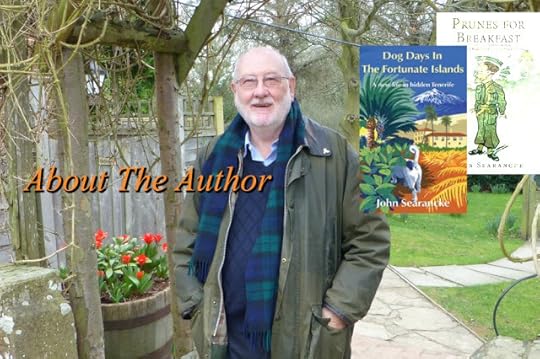
I was born in 1943 at Derby Royal Infirmary, a war baby, and for the first 18 years of my life my home was in Ashby de la Zouch, an old market town in Leicestershire. I was sent away to become a boarder at Kings Mead Preparatory School, Seaford, and then Rugby School. Having been at Rugby has certainly stood me in good stead throughout my life, and I could not have asked for better.
https://1.bp.blogspot.com/-1wWU1tsXyu8/VyK69pj4QqI/AAAAAAAABrw/M4sAP1bekf8UxWrrU2lm0b6vsqGgdsZlQCLcB/s1600/55978_1397938843770440_506513604_o.jpg”; imageanchor=”1″ style=”clear: right; margin-bottom: 1em; margin-left: auto; margin-right: auto;”>[image error]https://1.bp.blogspot.com/-1wWU1tsXyu8/VyK69pj4QqI/AAAAAAAABrw/M4sAP1bekf8UxWrrU2lm0b6vsqGgdsZlQCLcB/s200/55978_1397938843770440_506513604_o.jpg”; width=”198″ />
John
I am still not quite sure exactly how it came about (perhaps because my maternal grandfather was a solicitor) but I suddenly found myself articled to a firm of solicitors in Ashby. It was not a happy period for anyone concerned, although I have to concede that I learned a lot during my time there, but it was clear that I was too much of a free spirit to enjoy being chained to a desk for a pittance each week. The only highlights to my miserable years as a bookworm were trips out to criminal courts or prisons. I must have been to every prison in the Midlands.
Concurrently, I was commissioned into the Territorial Army and still proudly display my certificate signed by HM The Queen.
When my parent’s marriage began to founder, I relocated to West Sussex to help out at their latest venture, a country hotel. My few weeks’ offer of help (neither of my parents having even the slightest knowledge of, or interest in, the hotel industry) turned into some 35 years, with me taking over from them, changing and extending the place considerably along the way. My restaurant in the hotel held 2 AA Rosettes for food for a number of years right up until I sold the business.
My son Marcus, my pride and joy, was born in St. Richards Hospital, Chichester. As I write this, he has turned 41, and he is an accountant. Married to Tina, they have provided me with two lovely grandchildren, Josh and Sam.
After I sold my hotel I moved up to Lancashire, where I had met and later married Sally. We
Sally
started a new business together, a commercial legal services company, something completely new for both of us. During that time we encountered a puppy, Freddie, a Jack Russell/Staffie cross, who we “rescued” from the RSPCA and fell in love with.
We sold out on a high after some 10 years, enabling us to seriously consider the move to Tenerife. With nothing to hold us back, we made the life-changing move, and have not regretted it. Did I think that retirement would be relaxation in the sunshine? Far from it! I think that I have never been so busy, and the latest of my activities is becoming restaurant reviewer for the main Canary Islands newspaper. I was flattered to have been invited to the position. Our exploits in Tenerife with Freddie form the backbone of the stories in my first book.
My second book is an entirely different proposition, a different genre, and written in a completely different style. When a cache of letters, written by my father to my mother during the years of World War 2 eventually came in to my possession, I concluded that I should share some of them with a wider audience. In between a selection of those letters is traced the story of his life over those five long war years. It fascinated me to learn of the day to day life of an enlisted man – and later officer – as the war progressed to its inevitable conclusion, though finally without him as he languished behind the wire in a POW camp in Germany after having been captured on the battlefields of Normandy. And so his story has finally been written and my second book has now made it into print.

Author Website
Author Email
Twitter
https://twitter.com/@johnsearancke
https://twitter.com/AuthorDogDays
https://twitter.com/OfficialPrunes
Facebook
https://www.facebook.com/johnsearanckeauthor/?fref=ts
https://www.facebook.com/john.searancke.1
https://www.facebook.com/Dog-Days-in-The-Fortunate-Islands-867368390009475/
https://www.facebook.com/PrunesForBreakfast/
Rukia Publishing
http://www.rukiapublishing.com/meet-the-author-john-searancke.html
Troubador
http://www.troubador.co.uk/book_info.asp?bookid=2609

Exciting News!!!
Giveaway #1
Author John Searancke is offering everyone that purchases Dog Days in The Fortunate Islands a chance to win 1 of 3 eCopies of Prunes For Breakfast!
Send Us The Proof of Purchase for
And you will be entered to Win
Email Us at rukiapublishing@mail.com with your proof of purchase to be entered to win!!!
Giveaway #2
Enter For Your Chance To Win A $25 Amazon Gift Card From Rukia Publishing Book Promotions!!!
This Tour Is Brought To You By
“Let’s Give ’em Something To Talk About”
YOU could WIN $100 of Quality advertising
or as a Reader 20 E-booksCLICK HERE
Follow The Tour
29th
http://priyaslitblog.blogspot.com
http://rukiapublishingbookblogger.blogspot.com/
http://rpbpbooktours.weebly.com/blog
30th
https://lilyionamackenzie.wordpress.com
http://itpmeetsrukia.blogspot.com/
1st
http://memesandfiction.blogspot.com
http://djshaw2013.blogspot.com/
http://booknerdblogger.weebly.com/
2nd
http://massiveblackholenovel.blogspot.com/
http://sarahjanebutfield-glass-half-full.blogspot.com/
http://margaretadaly.weebly.com/
3rd
http://recipe-fairy.weebly.com/
http://bookswithabrew.blogspot.com/
http://www.rukiapublishing.com/sarah-janes-blog
Thank you for joining Us Today!
Be kind and leave a review when you read a book!
Send Us A Copy and we will spread the news!
Filed under: Links Tagged: retirement, spain








Meet the author of Dog Days in the Fortunate Islands!
Welcome To Tenerife! Enjoy the beautiful scenery and eternal spring with Dog Days In The Fortunate Islands by @AuthorDogDays #Travel ##ebook promotion #Europe #RPBP #ASMSG #WLM
Post Link: http://rukiapublishingbookblogger.blogspot.com/2016/04/welcome-to-tenerife-enjoy-beautiful.html
Html Embed Code Below(Copy And Paste)

Dog Days In The Fortunate Islands is an ideal read for those contemplating retirement, moving to the Canary Islands or an extended trip through Spain. The book will also appeal to any dog lovers and holidaymakers who enjoy an interesting story.

On the brink of retirement, John and his wife Sally are determined to end a life at the grindstone in grimy and wet Lancashire. Together with their beloved Jack Russell/Staffie cross, Freddie, a rescue dog from the local RSPCA, they embark on the journey of a lifetime and relocate to the island of Tenerife.
Selling up, they make the move to the north of Tenerife, a part almost unknown to the casual tourist – their very own hidden paradise. Relaxed and surrounded by stunning coastal views, life in their new home, set amidst orange groves and banana plantations, is very different indeed! The weather is fantastic, the temperature idyllic, the people so friendly and the cost of living outrageously low… what more could they ask for?
Adjusting to life abroad, and all of the costs that come with it, are explained in the book – from buying a new home and sorting out living taxes, to integrating into the local community and taking the dreaded Spanish driving test. Follow John and Sally as they learn a new language and take on a couple of new hobbies, while Freddie takes off on some unbelievable (but true!) exploits with his new canine friends.
With a colourful collection of characters, travelling anecdotes that stretch from the English Midlands and all the way through mainland Spain in an old classic car, and some not so perfect moments that bring us back down to earth from time to time, this is a series of adventures that you will not want to miss.

Dog Days In The Fortunate Island Is Available in eBook & Paperback Format at Most Online Retailers.
From April 29th through May 3rd the eBook is available at a huge discount! You can get this ebook for $1.99 at most good retailers!
Click A Link below and get your copy today, you’ll love it!
Matador / Amazon / Google Play / iTunes /

I was born in 1943 at Derby Royal Infirmary, a war baby, and for the first 18 years of my life my home was in Ashby de la Zouch, an old market town in Leicestershire. I was sent away to become a boarder at Kings Mead Preparatory School, Seaford, and then Rugby School. Having been at Rugby has certainly stood me in good stead throughout my life, and I could not have asked for better.
https://1.bp.blogspot.com/-1wWU1tsXyu8/VyK69pj4QqI/AAAAAAAABrw/M4sAP1bekf8UxWrrU2lm0b6vsqGgdsZlQCLcB/s1600/55978_1397938843770440_506513604_o.jpg”; imageanchor=”1″ style=”clear: right; margin-bottom: 1em; margin-left: auto; margin-right: auto;”>[image error]https://1.bp.blogspot.com/-1wWU1tsXyu8/VyK69pj4QqI/AAAAAAAABrw/M4sAP1bekf8UxWrrU2lm0b6vsqGgdsZlQCLcB/s200/55978_1397938843770440_506513604_o.jpg”; width=”198″ />
John
I am still not quite sure exactly how it came about (perhaps because my maternal grandfather was a solicitor) but I suddenly found myself articled to a firm of solicitors in Ashby. It was not a happy period for anyone concerned, although I have to concede that I learned a lot during my time there, but it was clear that I was too much of a free spirit to enjoy being chained to a desk for a pittance each week. The only highlights to my miserable years as a bookworm were trips out to criminal courts or prisons. I must have been to every prison in the Midlands.
Concurrently, I was commissioned into the Territorial Army and still proudly display my certificate signed by HM The Queen.
When my parent’s marriage began to founder, I relocated to West Sussex to help out at their latest venture, a country hotel. My few weeks’ offer of help (neither of my parents having even the slightest knowledge of, or interest in, the hotel industry) turned into some 35 years, with me taking over from them, changing and extending the place considerably along the way. My restaurant in the hotel held 2 AA Rosettes for food for a number of years right up until I sold the business.
My son Marcus, my pride and joy, was born in St. Richards Hospital, Chichester. As I write this, he has turned 41, and he is an accountant. Married to Tina, they have provided me with two lovely grandchildren, Josh and Sam.
After I sold my hotel I moved up to Lancashire, where I had met and later married Sally. We
Sally
started a new business together, a commercial legal services company, something completely new for both of us. During that time we encountered a puppy, Freddie, a Jack Russell/Staffie cross, who we “rescued” from the RSPCA and fell in love with.
We sold out on a high after some 10 years, enabling us to seriously consider the move to Tenerife. With nothing to hold us back, we made the life-changing move, and have not regretted it. Did I think that retirement would be relaxation in the sunshine? Far from it! I think that I have never been so busy, and the latest of my activities is becoming restaurant reviewer for the main Canary Islands newspaper. I was flattered to have been invited to the position. Our exploits in Tenerife with Freddie form the backbone of the stories in my first book.
My second book is an entirely different proposition, a different genre, and written in a completely different style. When a cache of letters, written by my father to my mother during the years of World War 2 eventually came in to my possession, I concluded that I should share some of them with a wider audience. In between a selection of those letters is traced the story of his life over those five long war years. It fascinated me to learn of the day to day life of an enlisted man – and later officer – as the war progressed to its inevitable conclusion, though finally without him as he languished behind the wire in a POW camp in Germany after having been captured on the battlefields of Normandy. And so his story has finally been written and my second book has now made it into print.

Author Website
Author Email
Twitter
https://twitter.com/@johnsearancke
https://twitter.com/AuthorDogDays
https://twitter.com/OfficialPrunes
Facebook
https://www.facebook.com/johnsearanckeauthor/?fref=ts
https://www.facebook.com/john.searancke.1
https://www.facebook.com/Dog-Days-in-The-Fortunate-Islands-867368390009475/
https://www.facebook.com/PrunesForBreakfast/
Rukia Publishing
http://www.rukiapublishing.com/meet-the-author-john-searancke.html
Troubador
http://www.troubador.co.uk/book_info.asp?bookid=2609

Exciting News!!!
Giveaway #1
Author John Searancke is offering everyone that purchases Dog Days in The Fortunate Islands a chance to win 1 of 3 eCopies of Prunes For Breakfast!
Send Us The Proof of Purchase for
And you will be entered to Win
Email Us at rukiapublishing@mail.com with your proof of purchase to be entered to win!!!
Giveaway #2
Enter For Your Chance To Win A $25 Amazon Gift Card From Rukia Publishing Book Promotions!!!
This Tour Is Brought To You By
“Let’s Give ’em Something To Talk About”
YOU could WIN $100 of Quality advertising
or as a Reader 20 E-booksCLICK HERE
Follow The Tour
29th
http://priyaslitblog.blogspot.com
http://rukiapublishingbookblogger.blogspot.com/
http://rpbpbooktours.weebly.com/blog
30th
https://lilyionamackenzie.wordpress.com
http://itpmeetsrukia.blogspot.com/
1st
http://memesandfiction.blogspot.com
http://djshaw2013.blogspot.com/
http://booknerdblogger.weebly.com/
2nd
http://massiveblackholenovel.blogspot.com/
http://sarahjanebutfield-glass-half-full.blogspot.com/
http://margaretadaly.weebly.com/
3rd
http://recipe-fairy.weebly.com/
http://bookswithabrew.blogspot.com/
http://www.rukiapublishing.com/sarah-janes-blog
Thank you for joining Us Today!
Be kind and leave a review when you read a book!
Send Us A Copy and we will spread the news!
Filed under: guest authors, Links Tagged: europe, retirement, spain, travel








April 22, 2016
Don’t Sell Out Our Elderly!
I’ve been booking readings in senior residences for several months because one Fling!’s main characters, Bubbles, is a feisty and fun-loving 90. I’ve hoped that Bubbles would inspire these older readers to share her zest for life and her unwillingness to “go gentle into that good night,” as Dylan Thomas insisted of his father in his poem “Do Not Go Gentle into That Good Night.” Thomas states that “Old age should burn and rave at close of day; / Rage, rage against the dying of the light.”
But instead of me riding in on my white charger to motivate these older adults, I’m the one that is being moved by a group of seniors that are often overlooked in this culture. Though many of them move into an assisted living facility because they need extra care, some can still handle independent living quarters that often are part of this world. And it appears there are as many of these establishments as there are financial means.
As an audience, they are generally very attentive and eager to hear the stories I bring that relate to my youth, the novel and its characters, what lead to be writing it, and any tidbits I have about the writing process itself. They ask thoughtful questions about the book and about publishing. And some of them also buy Fling!
During the reading I ask them questions about why they read and their origins. After, several will stay and chat with me, wanting me to hear some of their stories as well. One woman bought two copies of the novel for her daughters. She seemed sturdy and high functioning, but she told me she had vertigo whenever she turned her head or looked down, so her own reading is limited. Yet she wasn’t complaining. It was a condition she had learned to live with.
At another venue, a 96 year-old man who looked years younger came up after the 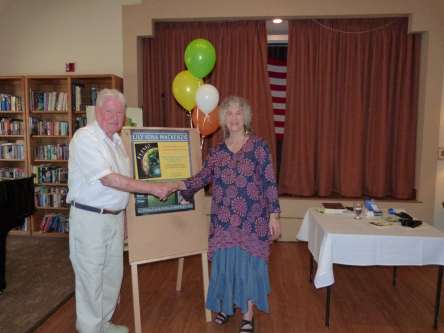 presentation and told me he had graduated from the University of San Francisco, an institution where I have taught for 30 years, in 1943. He showed me his diploma, written completely in Latin, a language that all graduates had to learn before they could graduate. I was impressed not only by the diploma but by him and his continuing enthusiasm for life.
presentation and told me he had graduated from the University of San Francisco, an institution where I have taught for 30 years, in 1943. He showed me his diploma, written completely in Latin, a language that all graduates had to learn before they could graduate. I was impressed not only by the diploma but by him and his continuing enthusiasm for life.
When I had completed a reading in Martinez, CA, an area where a lot of Italian Americans have settled, I spoke with a woman from that heritage. She told me she had worked as a secretary for 30 years at the Bank of America. At first, her boss tried to correct her grammar and spelling, but he soon learned that she knew more than he did. She had been an A+ student in high school and had mastered English. She asked him not to correct her work any longer, and he didn’t! But it was brave of her to challenge her male boss at that time, and it pleased me he had listened to her.
Each one of these individuals has a compelling story to tell. I haven’t even scratched the surface here. I just wish I had the time and means to record them all and share them with readers. Meanwhile, if you’re a writer and want a welcoming place to share your work, do consider these senior living places. You won’t be disappointed.
Filed under: Links Tagged: elderly, readings, senior living homes, senior residences











